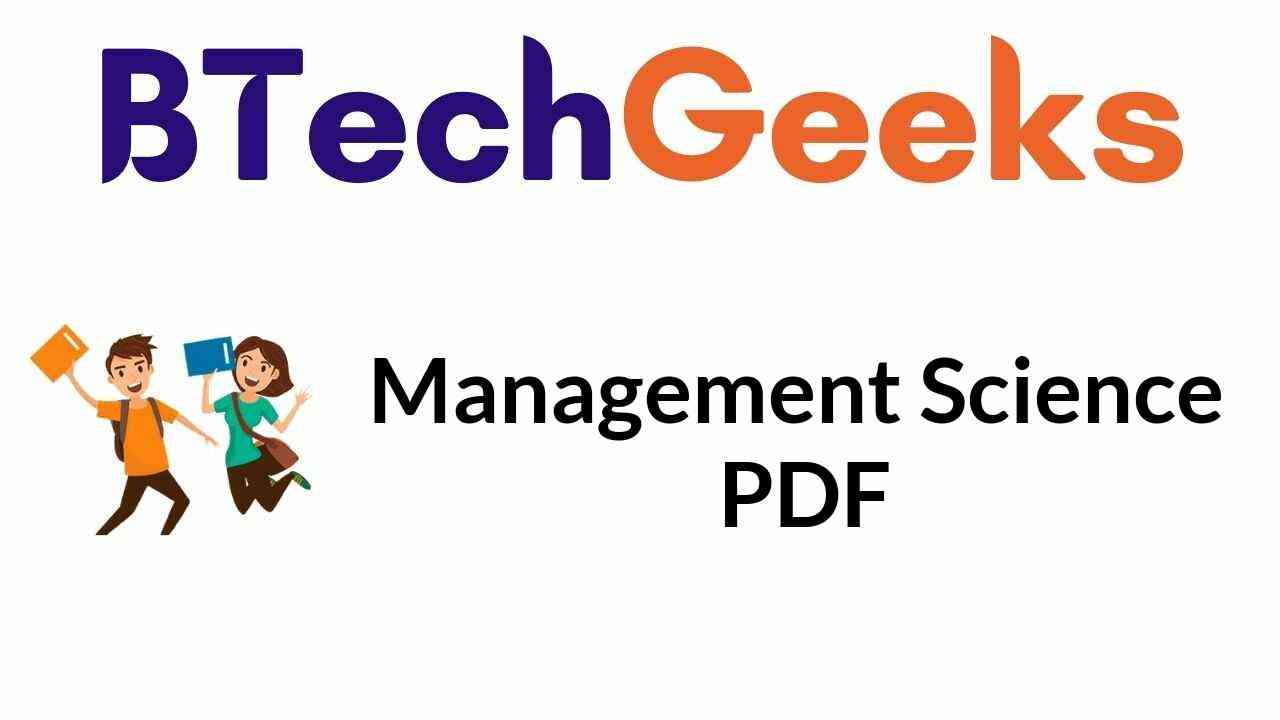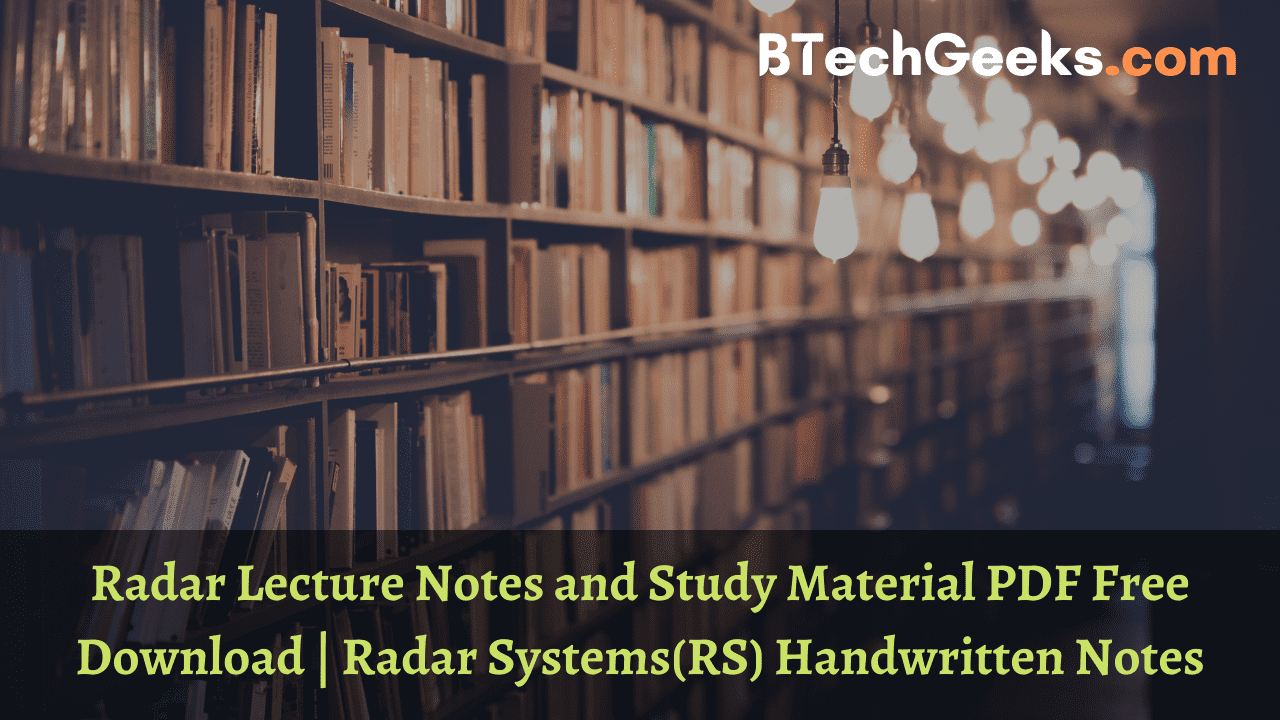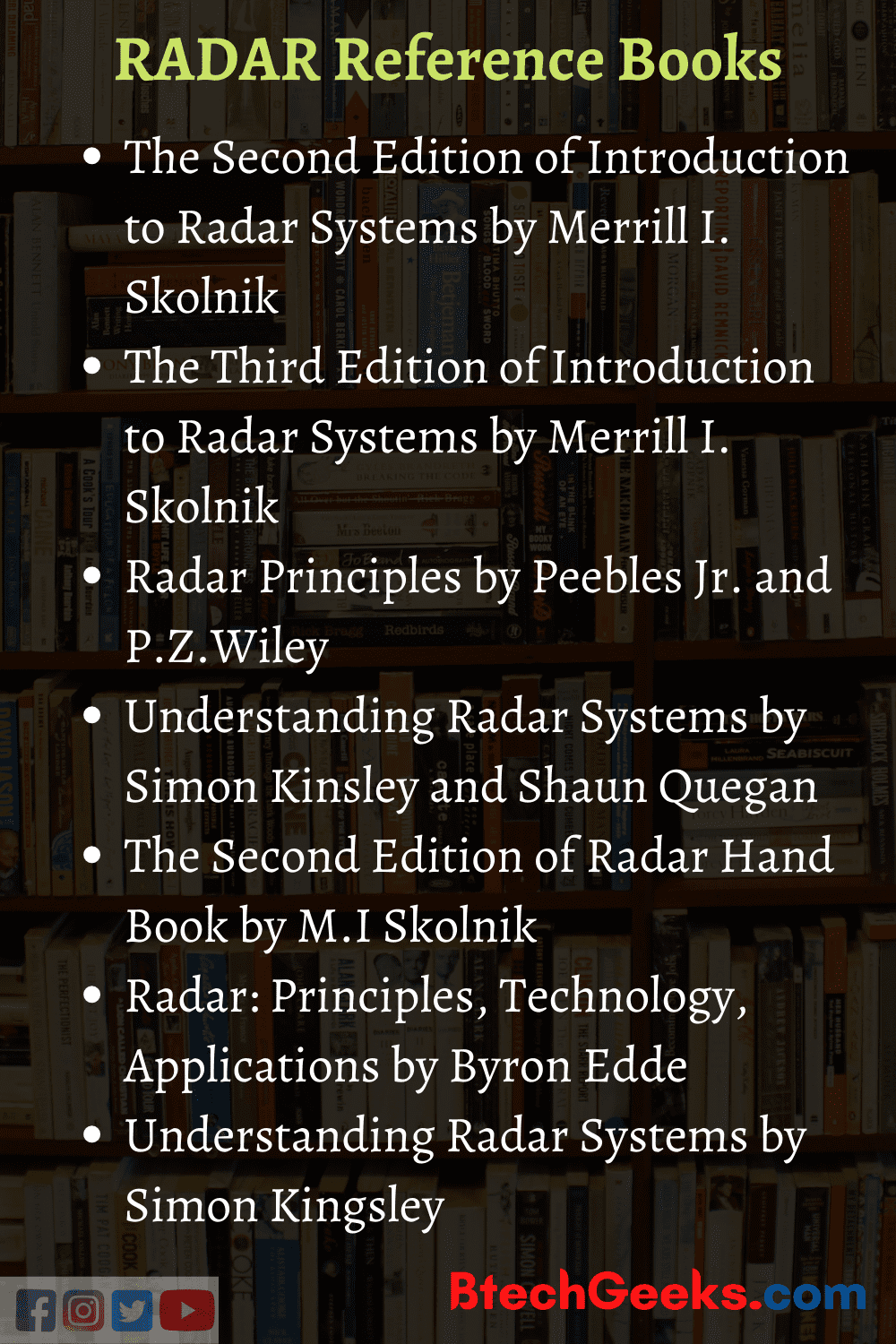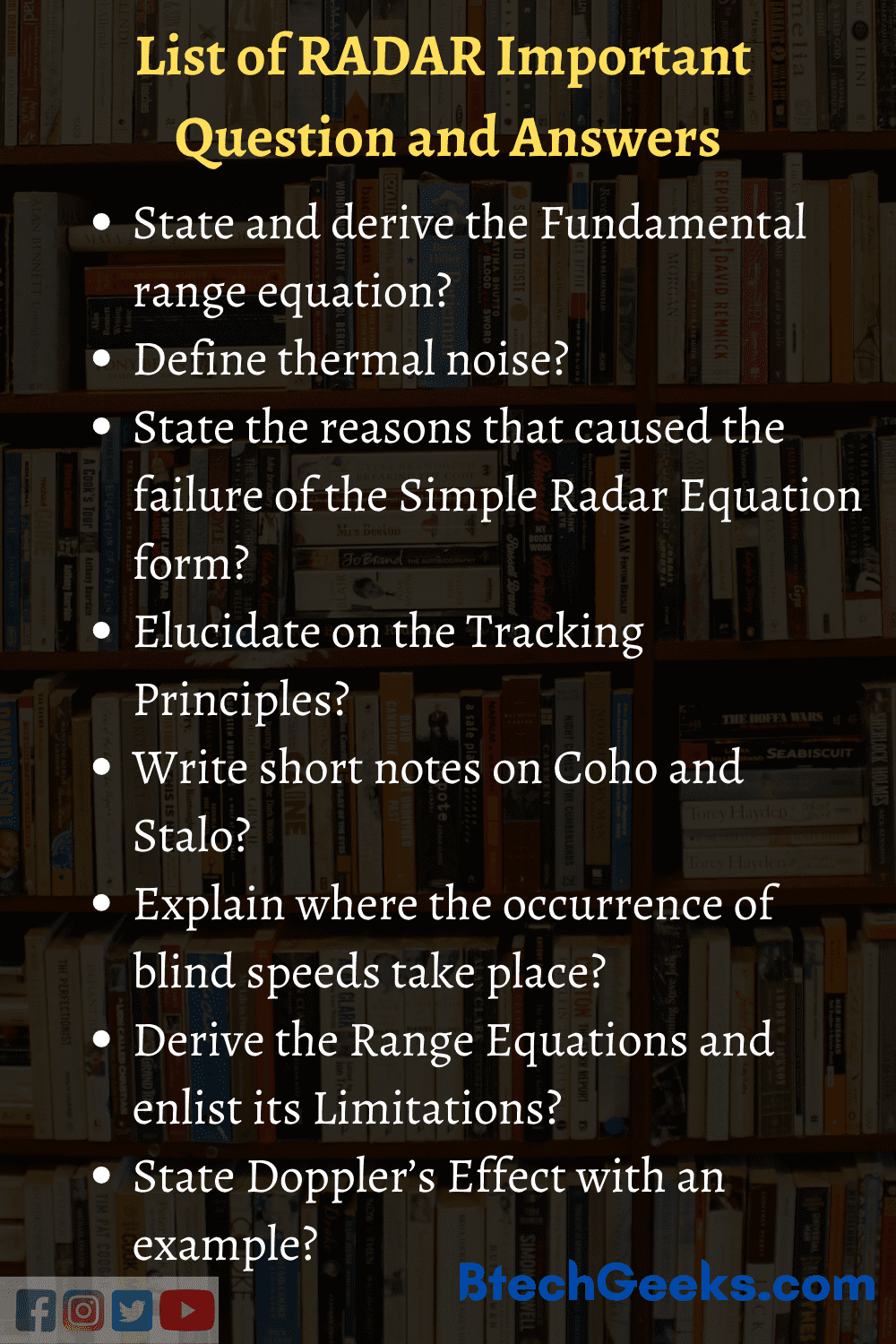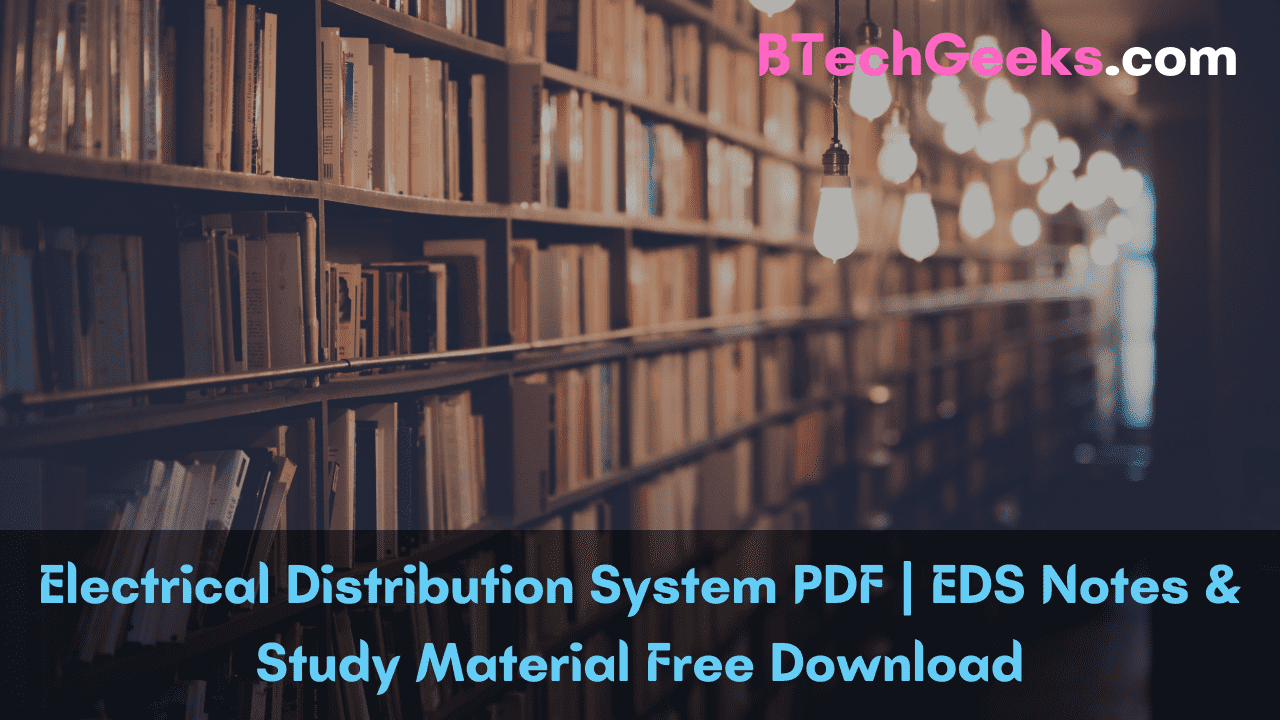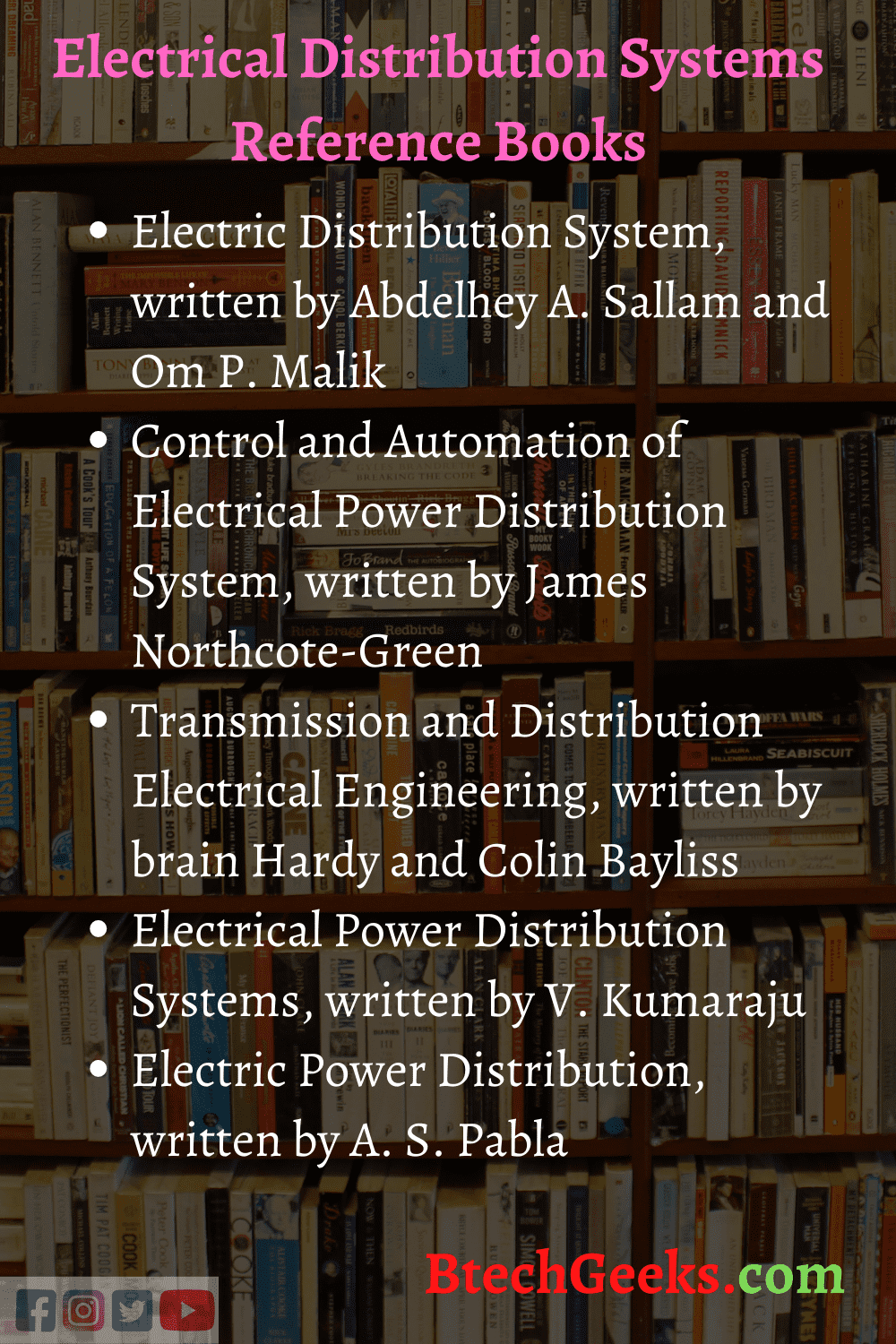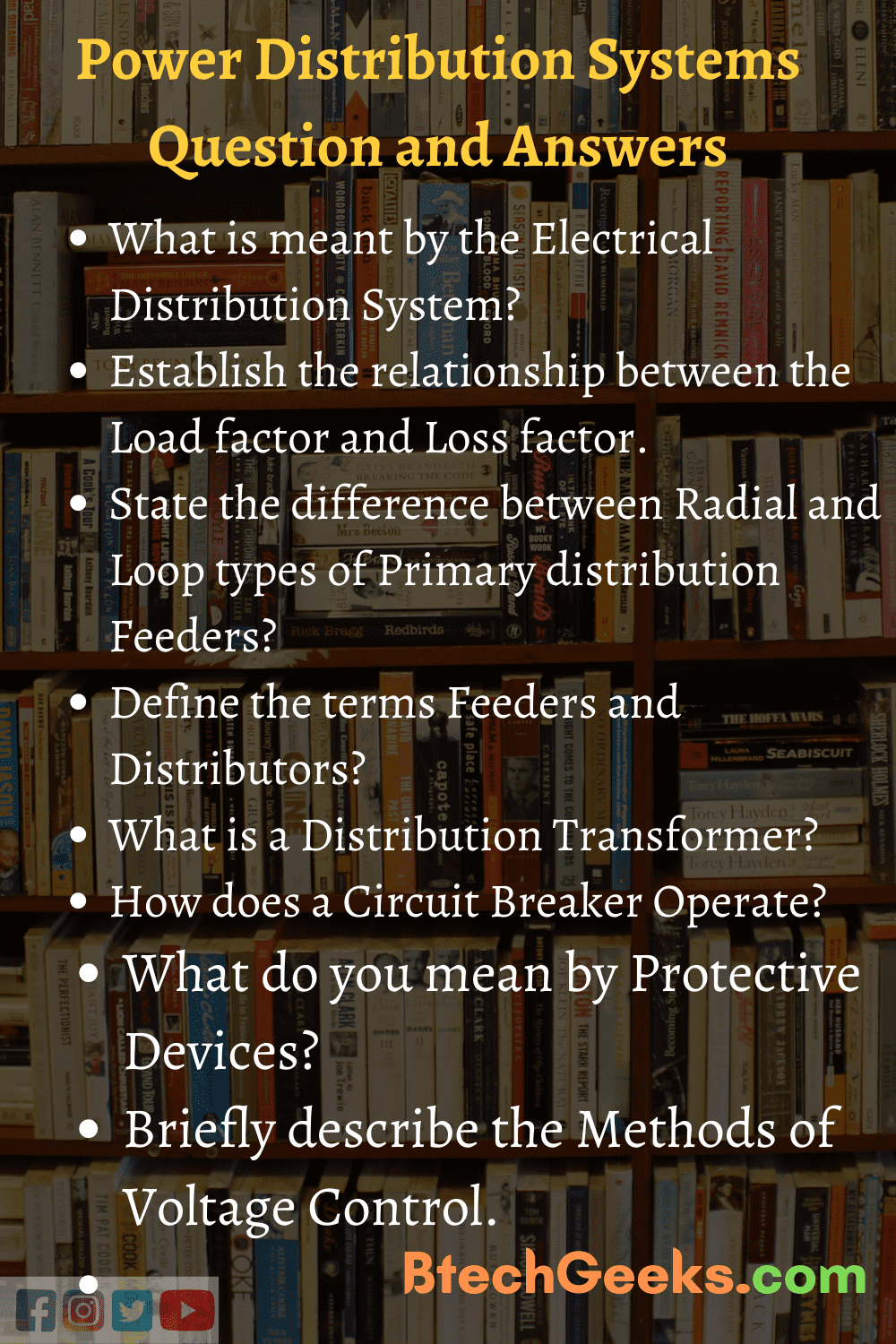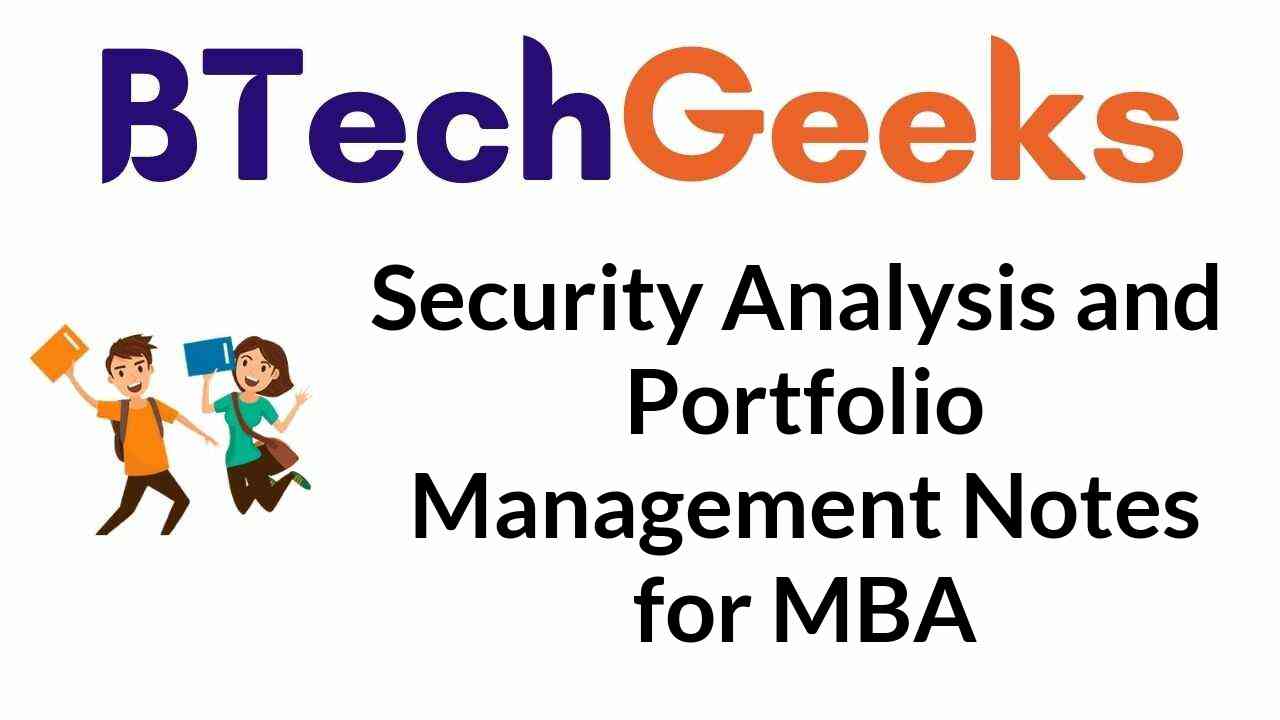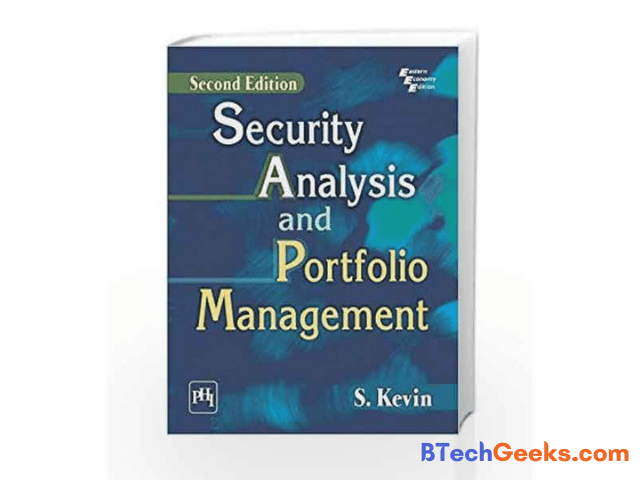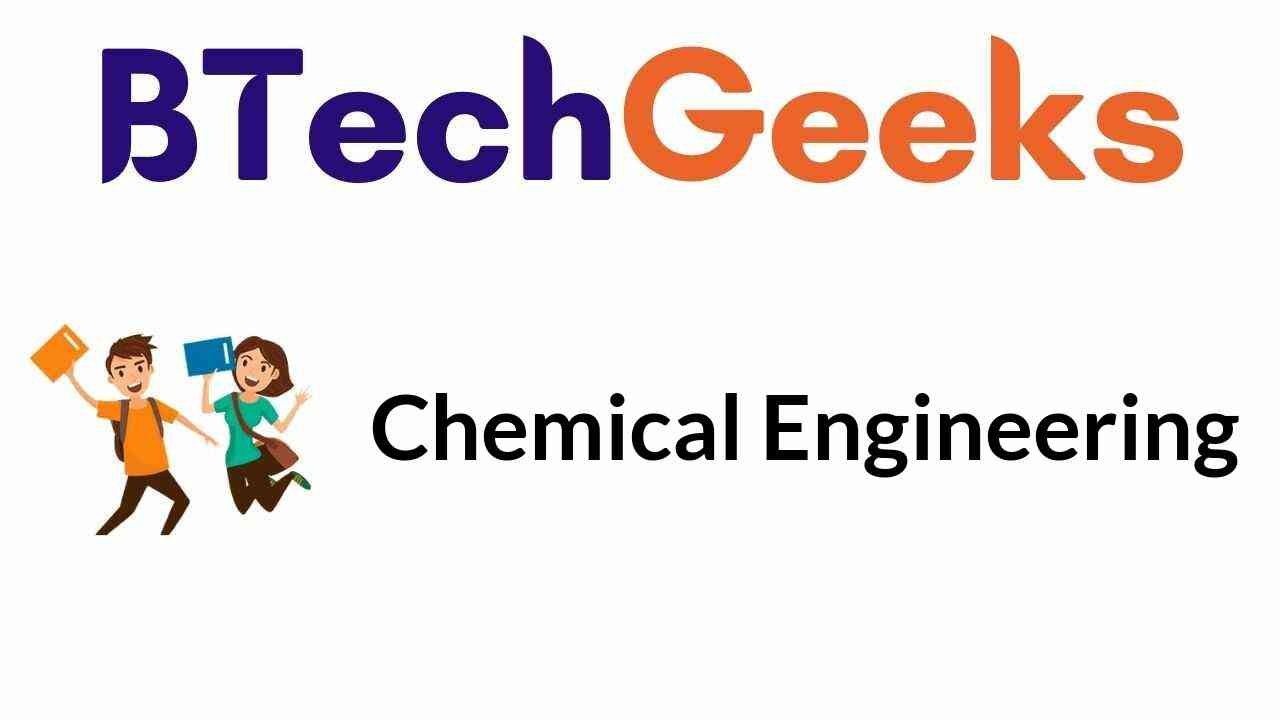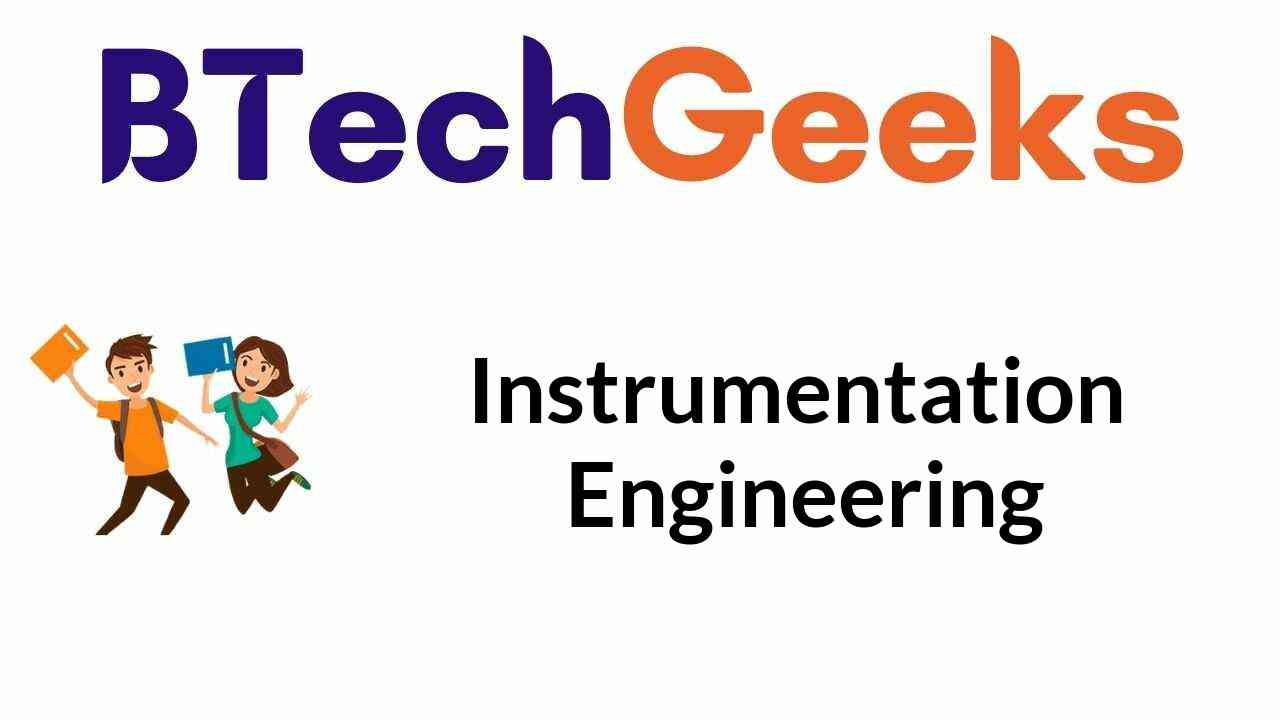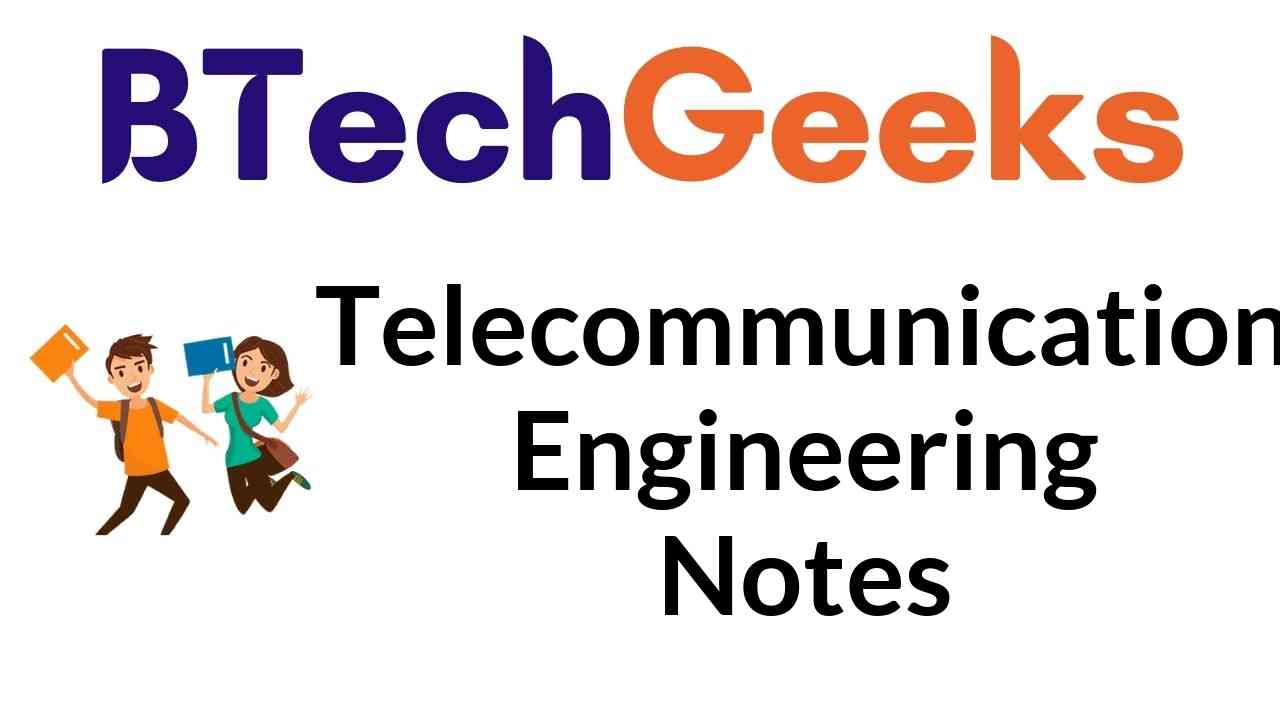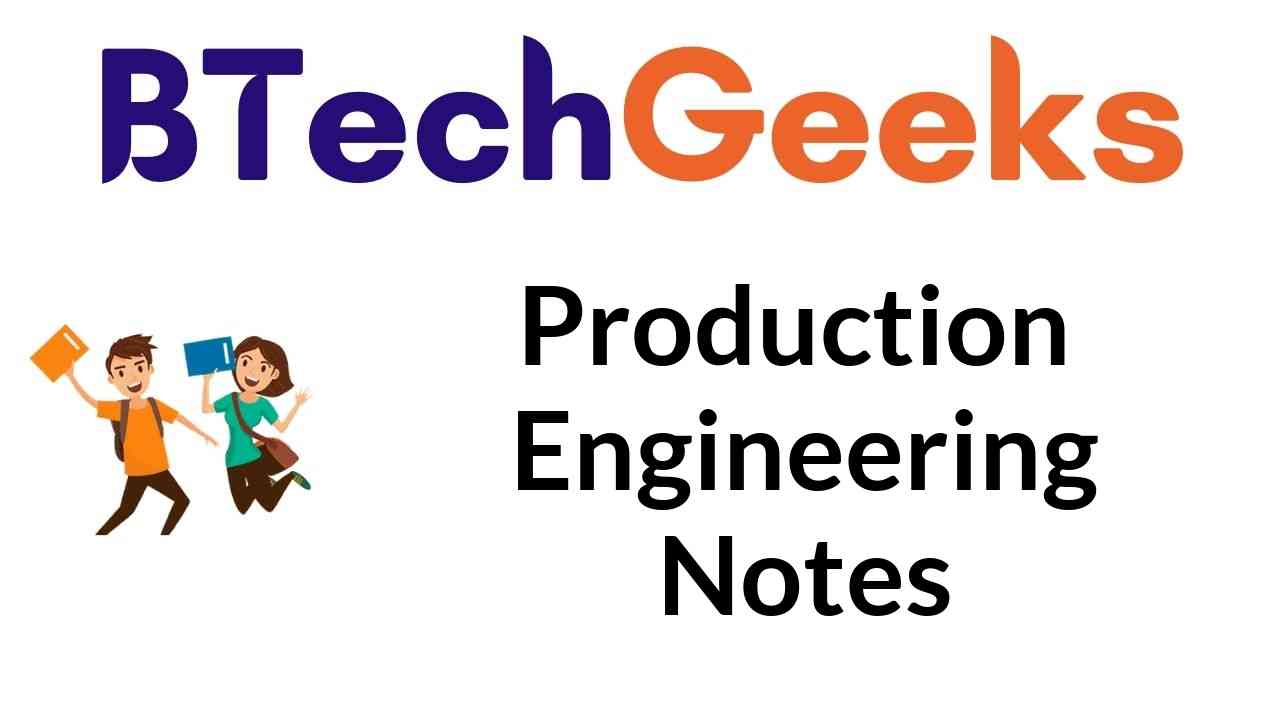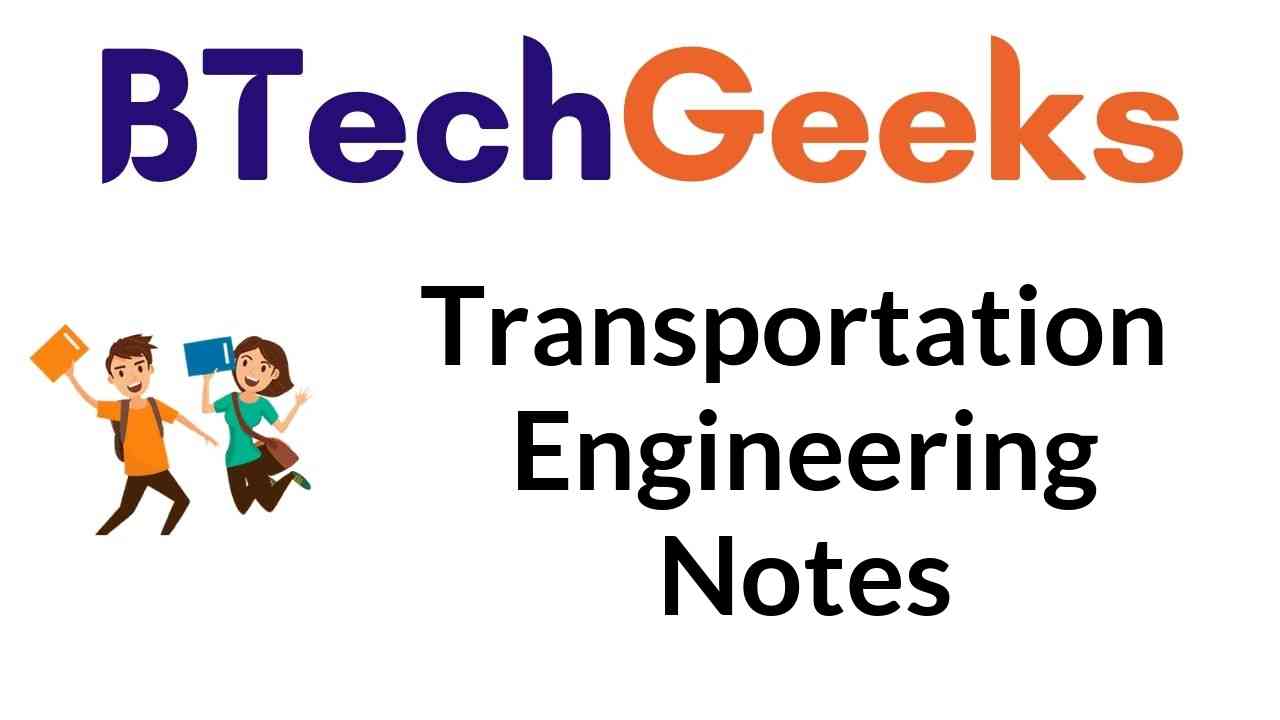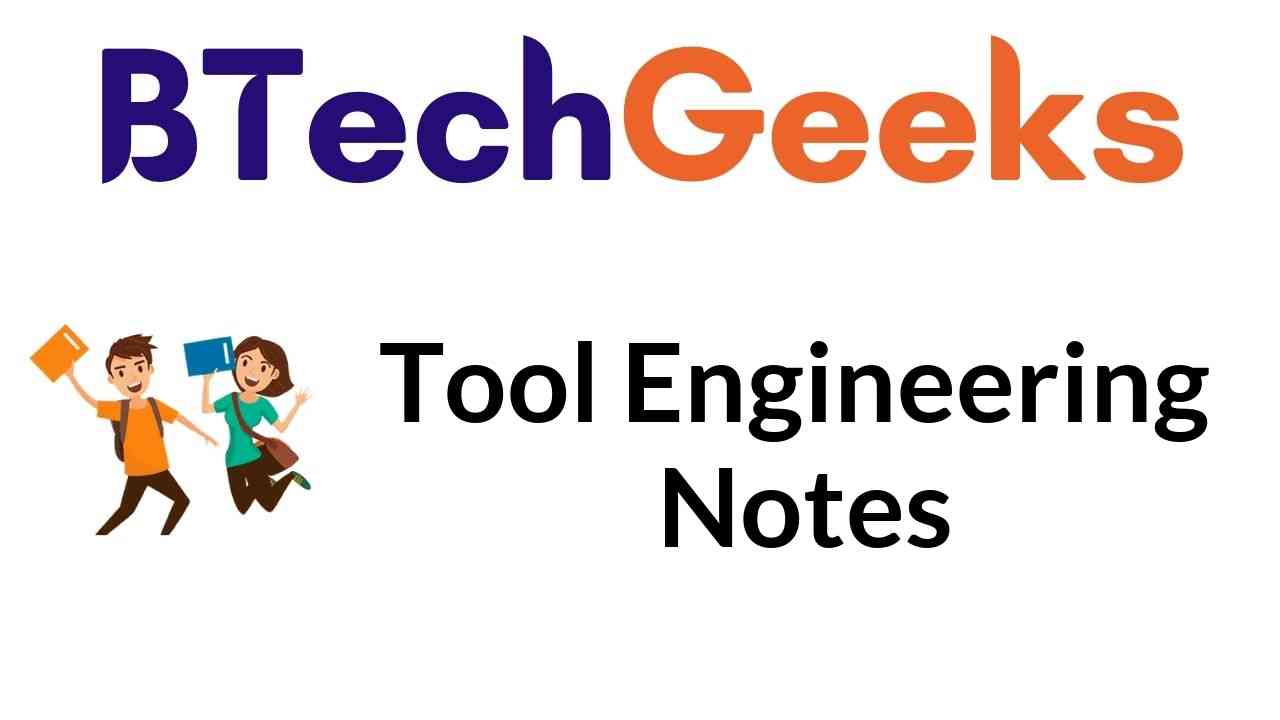Management Science Lecture Notes PDF: Graduates who are pursuing their MBA or B.Tech trying to get hold of the Management Science Lecture Notes PDF study materials and notes can access the best PDF downloads from this article for their preparation process of all the essential concepts.
The Management Science PDF Download Notes and study materials are vital to study resources that encourage and enhance better preparation and helps students score better grades. Students can refer to the Management Science Lecture Notes and resources as per the latest syllabus from this article.
The article on Management Science Hand Written Notes Notes gives graduates an overview of all the critical concepts as per the latest syllabus, subject expert reference books, and the list of all the crucial questions over regular Management Science Study Notes notes.
Graduates can avail the best, and credible Management Science Complete Notes PDFs and Reference Books from here and enable themselves to better their preparation methods and approaches with the best and up-to-date study materials and achieve better scores.
- Introduction to Management Science
- MBA/ B.Tech Management Science Study Notes PDF Free Download
- List of MS Reference Books
- Management Science PDF Syllabus
- List of Management Science Important Questions
- FAQs on Management Science Study Notes PDF
- Conclusion
Introduction to Management Science
Management Science is an application of science that deals with Management. Management Science Notes encompasses problems related to Management or the process of Management like Systems analysis, the study of Management-information Systems, and operations research.
Management Science Lecture Notes PDF is the study of all the activities that entails managerial functions such as-
- Adoption of Policies, Initiation of steps to change ineffective or inadequate policies, definition, discovering, evaluation, and development of organizational goals and alternative systems leading towards the plans
- Scrutinisation of the effectiveness or all the adopted policies
MBA/ B.Tech Management Science Study Notes PDF Free Download
Graduates pursuing their MBA or Bachelors in Technology (B.Tech) can access and download credible sources of study materials from this article on PDF Management Science Free Notes. Students can better and enhance their preparation with the fundamental tools that help them score better grades.
Students can download the study material and notes on Management Science Lecture Notes and use them as a source of reference whenever during the preparation or revision process. The utmost utilization of Management Science as an essential reference tool will help graduates get a better overview of all the essentials concepts and transpose their score game.
Here, are a list of a few essential notes on the MS course for a thorough preparation-
- BTech MS Fourth Year Notes PDF Download
- Management Science Lecture Notes Notes PDFs
- Best MS Handwritten Notes PDFs
- Management Science Second Year Notes for B.Tech PDFs
- MS Past Year Question Paper PDFs
- Management Science CSC Notes PDF
- MS Complete Notes MBA PDFs
- Management Science Unit-wise Notes PDFs
Management of Science Notes Reference Books
The list of all the highly recommended and best subject expert books on Management Science PDF Notes that helps better preparation is as follows. Graduates can select the recommended books that meet their knowledge and prepare accordingly for the examination.
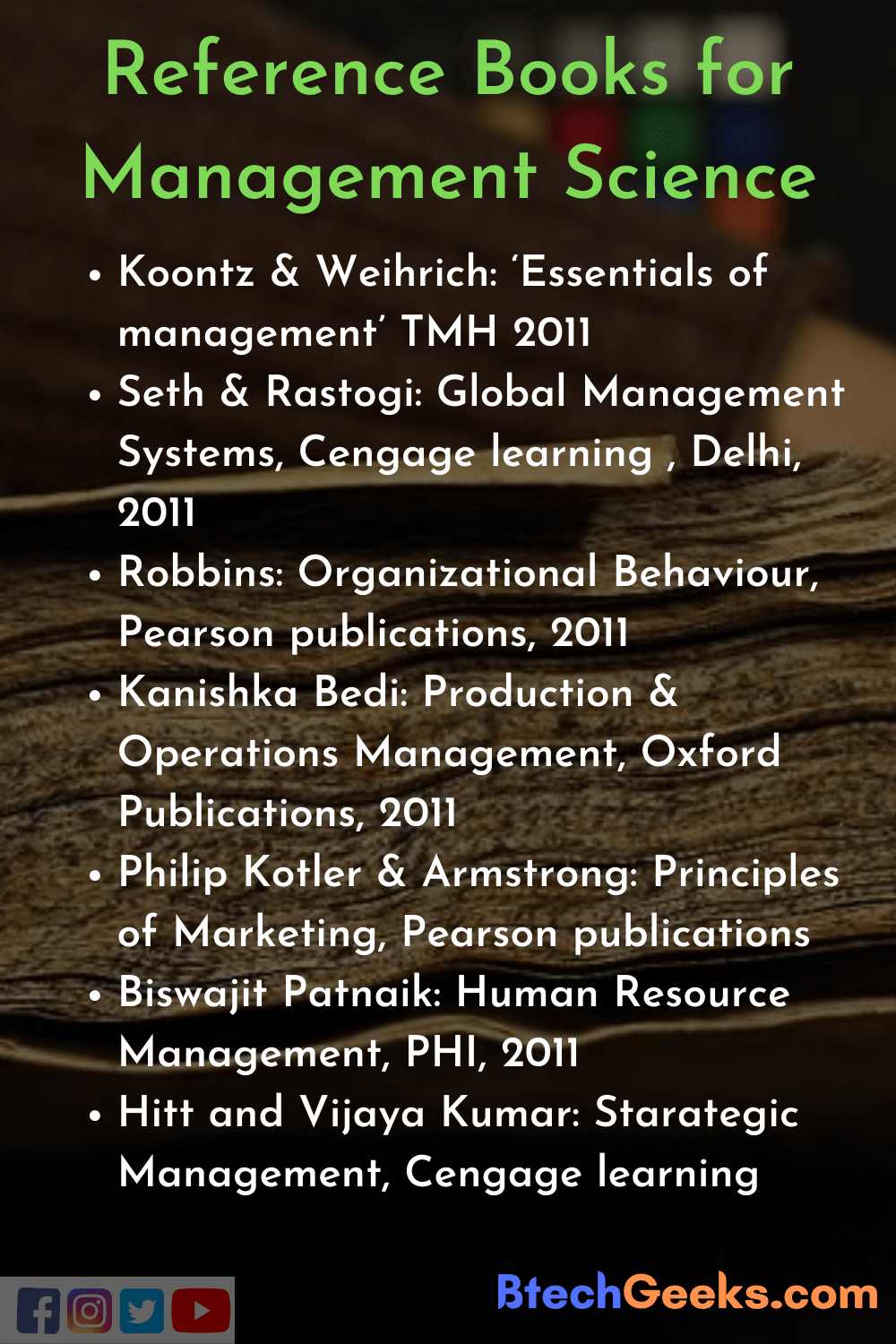
- Intro to Management Science Notes by David R. Anderson
- The Twelfth Edition of Introduction to Management Science Notes by Bernard W. Taylor
- Intro to Management Science – With Cd by Frederick Hillier
- The Eleventh Edition of Intro to Management Science Notes by Bernard W. Taylor
- Business Analytics: Data Analysis & Decision Making by S. Christian Albright and Wayne L. Winston
- Principles of Management Science Notes – Text Only by Frederick S. Hillier
- Management Science Notes: Art Modeling Spreadsheets by Stephen G. Powell and Kenneth R. Baker
- An Intro to Management Science – Quantitative Approach by Dennis J. Sweeney, David R. Anderson, Jeffrey D. Camm, and Thomas A. Williams
- Management Science Decision-Making Through Systems Thinking by Donald McNickle and Hans Daellenbach
- Management Science Decision- Making through Systems Thinking by Hans Daellenbach, Shane Dye, and Donald McNickle
- The Third Edition of Intro to Management Science by Bernard W. Taylor
Human Resource Management Science Syllabus
The Syllabus is an essential element that briefs students of all the vital topics and concepts concisely and comprehensively. The best way to make preparation an effective process is by having an initial idea and a brief overview of the Human Resource Management Science Syllabus.
The Course Curriculum gives students a clear idea of what to study and helps them organize, structure, and plan the preparation process. The article on the nature and importance of Management Science free Notes provides a detailed view of the Management Science Class Notes curriculum, keeping into account every student’s requirements. The report offers a unit-wise break up that lays out all the essential topics for students to allot time to each concept accordingly.
Students must ensure to cover all the essential topics and concepts before attempting the Management Science exam so that the paper is reasonably answerable and accessible at the time of the examination. Graduates must also stay aware of the PDF Management Science Syllabus to prevent wasting unnecessary time on redundant topics.
The updated unit-wise breakup of the Management Science (MS) Syllabus is as follows-
| Unit | Topics |
| UNIT-I |
|
| UNIT-II |
|
| UNIT-III |
|
| UNIT-IV |
|
| UNIT-V |
|
List of Management Science Important Questions
Candidates pursuing Bachelors in Technology (B.Tech) or MBA can read through and access the list of the essential questions mentioned below for the Management Science Notes PDF course preparation. All the given review questions help candidates excel in the examination.
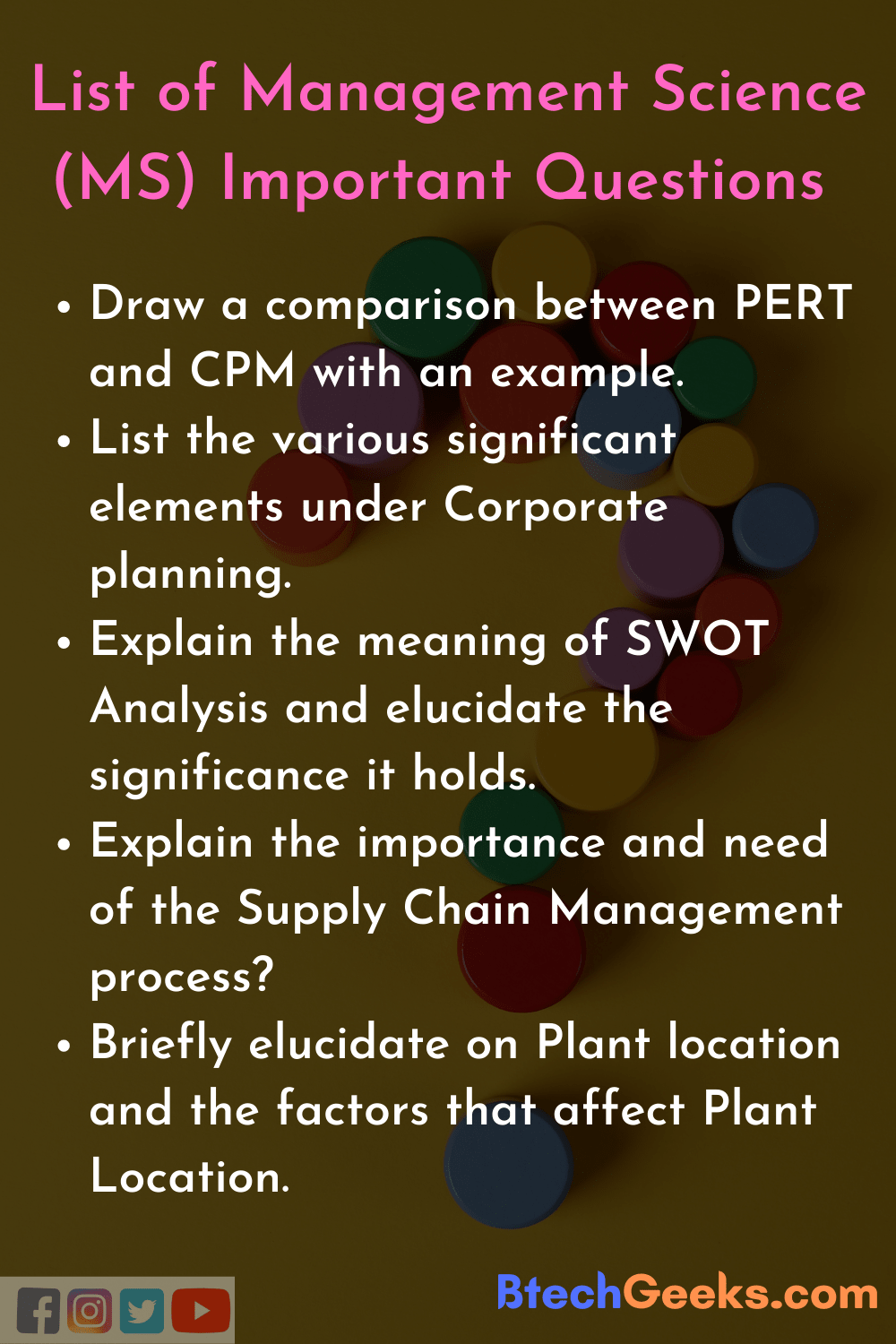
- Define and briefly evaluate the methods of Departmentalisation.
- Define Management and Organisation and establish the relation between the two.
- Briefly explain the concept of Management and state the Scope, Importance, and Nature of the Organisation.
- Define HRM and draw a comparison between HRM versus PMIR.
- Briefly explain Production and Productivity and elucidate how productivity can enhance and better Indian Industries.
- What are Network Analysis and state the rules for drawing networks?
- With a neat-labelled diagram, define PLC and explain various stages in PLC.
- Enumerate the elements of the Corporate Planning Process.
- Define Job Evaluation and briefly explain the methods and advantages of Job Evaluation.
- Draw a comparison between PERT and CPM with an example.
- List the various significant elements under Corporate planning.
- Explain the meaning of SWOT Analysis and elucidate the significance it holds.
- Elucidate the development of products in the TQM Environment.
- Explain the importance and need of the Supply Chain Management process?
- Briefly elucidate on Plant location and the factors that affect Plant Location.
FAQs on Management Science Study Material PDF Download
Question 1.
Give a brief on Management Science Complete Notes.
Answer:
Management Science Lecture Notes is a broad branch that is often linked with various interdisciplinary studies like Economics, Engineering, Management, Management Consulting, Business, and other fields. This branch is the study of decision-making and problem-solving in multiple organizations.
Question 2.
State the importance of Management Science Notes.
Answer:
Management Science Class Notes pdf download helps in the identification of processes that notices the weakness area points, works, and realizes the possibilities of the future based on the needs and requirements of the organization’s consumer base. The Management Science Study Notes pdf approach makes the utilization and use of the resources simpler since the framework can notify the user of the available resources.
Question 3.
Enumerate a few experts recommended Management Science Books.
Answer:
- Intro to Management Science by David R. Anderson
- The Twelfth Edition of Intro to Management Science by Bernard W. Taylor
- Intro to Management Science – With Cd by Frederick Hillier
- The Eleventh Edition of Intro to Management Science by Bernard W. Taylor
- Business Analytics: Data Analysis & Decision Making by S. Christian Albright and Wayne L. Winston
Question 4.
What is the importance of the Management Science Syllabus?
Answer:
The Management Science Course Curriculum gives students a clear idea of what to study and helps them organize, structure, and plan the preparation process. Besides, here you avail the unit-wise break up that lays out all the essential topics so that you can allot time to each concept accordingly.
Conclusion
The article on Management Science Note PDF Download is a credible and reliable source that aims to create better preparation and all the books and other sources mentioned above help students enhance their knowledge and comprehension of the course subject during their revisions and examination period. Students can download the PDF for reference and practice from the provided Management Science Lecture Notes PDFs, notes PDFs, books, and the list of essential questions from this article.

